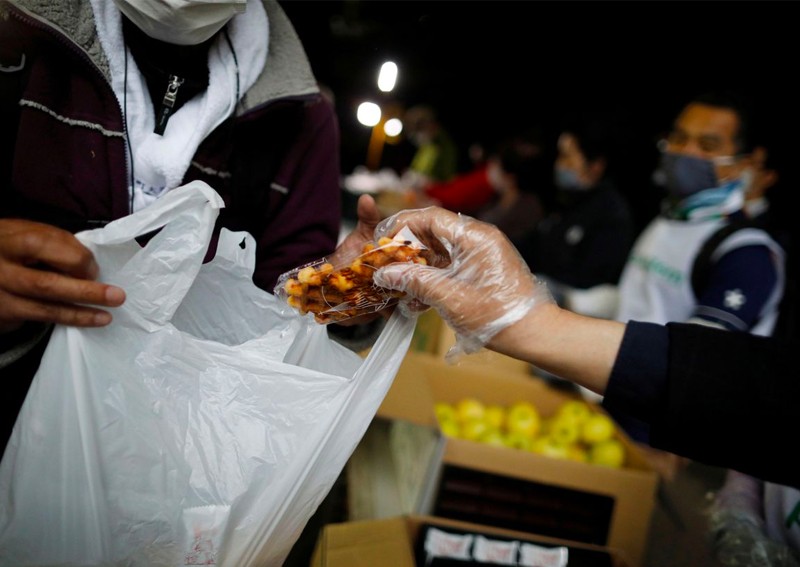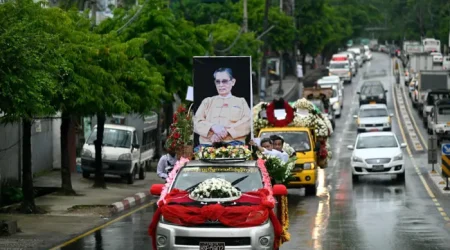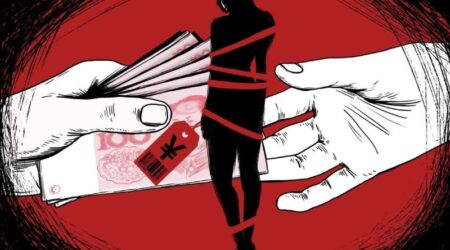Will Japan’s food banks have enough to feed all the needy in coming weeks?

The neediest in Japanese society have muddled through the last couple of years, enduring the economic insecurity that has accompanied the coronavirus pandemic and its impact on jobs with the help of the nation’s food banks.
With Japan – and the rest of the world – apparently headed into recession as a result of the Ukraine war, there is growing concern that demand on food banks is going to outstrip the help they are able to provide.
Compounding the problem, food bank operators say, is that more retail companies are insisting on destroying food that cannot be sold before its expiry date, while too little information is available to those who need help the most.
“At its most basic, there is no food safety net for the most needy in Japan,” said Iruma Tanaka, a member of the board of the Tokyo-based Alliance of Japan Foodbanks, which brings together 11 like-minded organisations across the country.
“There are too many people who cannot access food because there are few church organisations or city councils that provide help,” he said. “Yes, there is other help, such as welfare payments, but not something as basic as food help.”
Tanaka said the employment situation in Japan before the pandemic appeared to be relatively positive, with the ageing population meaning that labour was in short supply and jobs therefore easy to secure.
Unfortunately, he added, many positions were part-time roles that provided minimum benefits and quickly disappeared when the pandemic struck and consumption shrank dramatically.
“These jobs were taken by people who often had low education levels and then needed help when they could not find other employment,” he said. “And they did not know how to obtain social welfare as they simply did not know.”
These people are now finding their way to food banks, although that is now coinciding with rising inflation in Japan, worsened by the weakening yen making imports even more expensive, with basic foodstuffs among the items subject to soaring prices.
And individuals and smaller shops that would in the past donate items that were slightly damaged or not perfect –tinned food with torn labels, misshapen vegetables or bruised fruit – are now consuming those items themselves rather than passing them on to food banks.
In early September, economic analysts at Teikoku Databank Ltd announced that a study of 105 of the nation’s food producers had determined that the price of 10,000 food items would increase in the coming three months.
And that was on top of the 10,000 items that had already become more expensive to purchase since the Ukraine war broke out, disrupting global supply chains and food supplies.
“The rising cost of food is having an impact and people are looking for cheaper options, although that is becoming more difficult,” Tanaka said. “And then they come to us.”
Charles McJilton set up Second Harvest Japan 23 years ago and says there has been a change in the people who are coming to the food bank today.
Refugees and foreigners who were struggling to get by in Tokyo used to account for most visitors, he said, but that has shifted to more single mothers and elderly people.
The problem has been worsened by a change in the law in 2019 that was designed to oblige large supermarket chains to dramatically reduce the amount of food that was simply being destroyed instead of being donated to food banks.
The retailers responded by selling at a discount items that they would previously have donated and reconsidering corporate social responsibility programmes.
McJilton said that Walmart was previously a “big supporter” of Second Harvest Japan, even winning awards for the scale of the support that it provided, which included Walmart staff serving as volunteers in the food bank’s activities.
That came to an abrupt halt when the company’s Japan operations were bought out by domestic firm, supermarket operator Seiyu GK, which is partly owned by Rakuten Inc. Both are multibillion-dollar firms operating in many countries, with thousands of employees.
McJilton said infrastructure set up specifically to support the transfer of donated food at 160 stores across the country was “destroyed.”
“It is mind-boggling to me that they would intentionally destroy a system that was set up to help people when all we seem to hear about today is sustainability,” he said.
In a statement to This Week in Asia, a Rakuten official said, “The decision to suspend food donation activities was not Rakuten’s, nor was it the result of direction from Rakuten to Seiyu.
“Since the management structure change, Seiyu has been carrying out wide-sweeping, large-scale reforms in every aspect of our operations,” the official said.
“In line with these reforms, as an independent company, we decided to halt our existing food donation activities while we review and redefine our strategy for SDG (sustainable development goal) initiatives.”
McJilton insists the food donation initiative “did not cost the company money, was great PR and the employees there felt good, and now we are struggling to get more help into the community”.
And he fears that with the nation’s looming economic problems, the poorest in Japanese society are soon going to be in more need than ever before.
“It’s clear that prices are rising and that there’s a lot of insecurity about,” he said. “We are seeing incremental increases right now, but I estimate that in three or four months, we are going to be seeing a lot more people seeking help.”












Leave a Reply